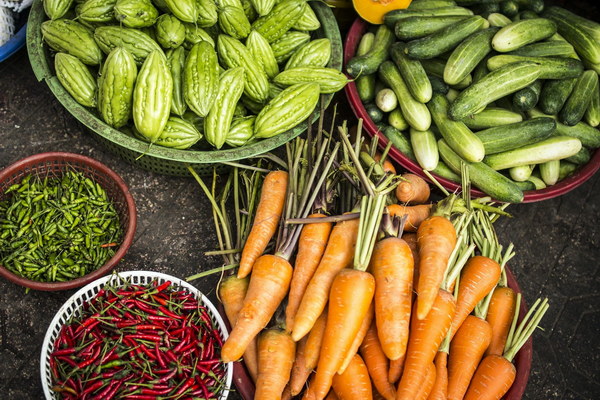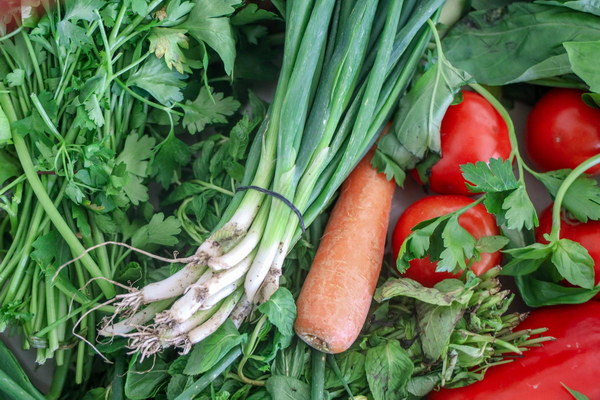The Time-Honored Tradition of Nourishing Soups in Wuhan A Healing Journey for Body and Mind
In the bustling metropolis of Wuhan, a unique culinary tradition has been passed down through generations. It's a practice that not only satisfies the taste buds but also promises to rejuvenate the body and mind. The tradition we're talking about is none other than the art of drinking soup to replenish Qi and blood.
Wuhan, a city known for its rich history and vibrant culture, has long embraced the belief that soup is a vital component of maintaining health and well-being. In this article, we'll explore the significance of soup in Wuhan's culture, the types of soups that are commonly consumed, and the health benefits they offer.
The Significance of Soup in Wuhan Culture
In traditional Chinese medicine, the concept of Qi (vital energy) and blood is integral to maintaining a healthy life. Soups are believed to be an excellent way to replenish and balance these vital elements within the body. This belief has deeply rooted itself in Wuhan's culture, where soups are considered a daily necessity rather than a mere delicacy.
During the cold winter months, when the body is more susceptible to illness, Wuhan locals rely on soups to keep their immune systems strong and their energy levels high. It's not uncommon to see families gathered around a steaming bowl of soup, sharing stories and warmth.
Types of Soups in Wuhan
Wuhan's soup culture is incredibly diverse, offering a wide range of flavors and ingredients. Here are some popular soup varieties:
1. Congee (Rice Porridge): A staple in Wuhan, congee is made by boiling rice in water until it becomes a thick, creamy porridge. It's often served with a variety of toppings, such as preserved vegetables, tofu, or eggs.
2. Fish Soup: This soup is a favorite among Wuhan residents, as it is believed to be particularly beneficial for replenishing Qi and blood. The fish is typically freshwater, such as crucian carp or crucian fish, and is cooked with a variety of herbs and spices.
3. Stewed Pork and Tomato Soup: This hearty soup combines tender pork with ripe tomatoes, creating a rich and flavorful broth that is both soothing and nutritious.
4. Vegetable Soup: A lighter option, vegetable soup is made with a variety of locally sourced vegetables, such as bok choy, mushrooms, and carrots, and is often seasoned with soy sauce and ginger.
5. Cassia Seed Soup: This soup is a specialty of Wuhan and is believed to help improve blood circulation and reduce fatigue. It's made with cassia seeds, dates, and goji berries, all of which are known for their health benefits.
Health Benefits of Drinking Soup in Wuhan

The health benefits of drinking soup in Wuhan are numerous:
1. Replenishes Qi and Blood: As mentioned earlier, soups are believed to help replenish and balance the body's Qi and blood, which is essential for overall health and well-being.
2. Boosts Immune System: The nutrients found in soups, such as vitamins, minerals, and antioxidants, help strengthen the immune system, making it easier for the body to fight off illness.
3. Promotes Digestion: Soups are easy to digest and can help improve digestion, which is crucial for maintaining a healthy gut.
4. Soothes the Senses: The warm and comforting nature of soups can help soothe the senses, reducing stress and promoting relaxation.
5. Hydration: Soups are a great way to stay hydrated, especially during the hot summer months when the body loses fluids more quickly.
In conclusion, the tradition of drinking soup to replenish Qi and blood in Wuhan is a testament to the city's deep-rooted connection to health and well-being. Whether you're a local or a visitor, savoring a warm bowl of soup is an experience that promises to leave you feeling rejuvenated and revitalized. So next time you find yourself in Wuhan, don't hesitate to dive into the world of soups and discover the magic they hold for both body and mind.









